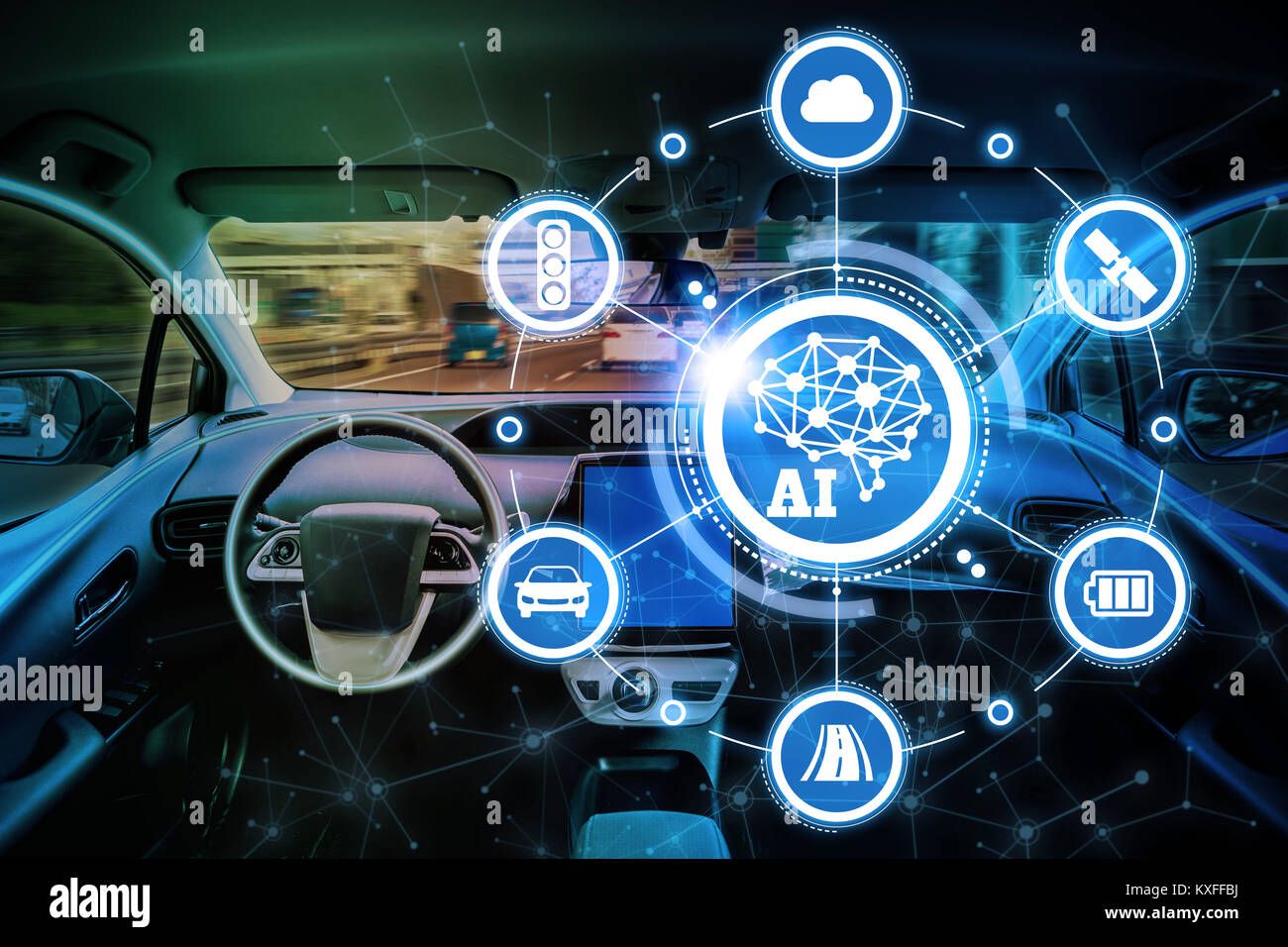Artificial Intelligence (AI) has made its way into various industries and is now transforming the automotive industry as well. With AI-driven advancements, cars are becoming smarter, safer, and more efficient than ever before. From self-driving vehicles to advanced driver assistance systems, AI is revolutionizing the way we drive. Let’s explore how AI is shaping the future of the automotive industry.
Self-driving Cars: The Future of Mobility
One of the most prominent applications of AI in the automotive sector is the development of self-driving cars. With the assistance of AI algorithms, these vehicles can navigate and make decisions without human intervention. AI-powered sensors and cameras constantly monitor the surroundings, identifying obstacles, pedestrians, and other vehicles on the road, ensuring a safe and efficient driving experience.
Self-driving cars have the potential to eliminate human error, which is responsible for the majority of road accidents. By analyzing vast amounts of data in real-time, AI algorithms can make split-second decisions that can prevent accidents and save lives. Furthermore, self-driving cars offer increased mobility for people with disabilities and the elderly, making transportation more accessible and inclusive.
Enhanced Driver Assistance Systems
AI is also revolutionizing driver assistance systems by providing advanced features that enhance safety and convenience. AI algorithms can analyze road conditions, traffic patterns, and driver behavior to provide real-time feedback and alerts. Features like adaptive cruise control, lane departure warning, and automatic emergency braking are examples of how AI is making driving safer.
Driver monitoring systems powered by AI can detect signs of drowsiness or distraction and issue alerts to the driver, reducing the risk of accidents due to driver inattention. Furthermore, AI algorithms can analyze driver behavior and provide personalized suggestions for improving fuel efficiency, saving money, and reducing carbon emissions.
Intelligent Traffic Management
AI-powered systems can also revolutionize traffic management and congestion. By analyzing historical and real-time traffic data, AI algorithms can optimize traffic flows, reduce bottlenecks, and minimize delays. Smart traffic lights that adapt their timing based on traffic conditions can alleviate congestion and improve the overall efficiency of transportation networks.
Additionally, AI can enable predictive maintenance of roads and infrastructure by analyzing data from sensors embedded in the roadways. By identifying potential maintenance issues in advance, authorities can ensure timely repairs and prevent accidents caused by road defects.
Enhanced User Experience
AI is not only changing the way we drive but also enhancing the overall user experience. AI-powered voice assistants like Siri and Google Assistant can be integrated into vehicles, allowing drivers to control various functions using voice commands. From adjusting the temperature to playing music, these voice assistants provide a hands-free and intuitive way of interacting with a vehicle.
Furthermore, AI algorithms can learn driver preferences and adjust settings automatically, creating a personalized driving experience. From seat positioning to entertainment preferences, AI can tailor the vehicle’s settings to suit individual drivers, providing a comfortable and enjoyable ride.
The Road Ahead: Challenges and Opportunities
While AI has immense potential, there are still challenges that need to be overcome. One of the main concerns is the ethical implications of AI, particularly in self-driving cars. Decisions regarding potential accidents, where human lives are at stake, raise questions about liability and priorities. Policymakers and industry leaders must work together to establish a framework that ensures ethical AI decision-making.
Privacy and data security are also critical in an AI-driven automotive industry. As vehicles become more connected, they generate and consume vast amounts of data. Protecting this data from unauthorized access and misuse is crucial to maintain trust in AI-powered systems.
Despite these challenges, AI presents numerous opportunities for the automotive industry. From reducing accidents and traffic congestion to improving fuel efficiency and enhancing user experience, AI has the potential to transform the way we drive.
Conclusion
AI is revolutionizing the automotive industry by making cars smarter, safer, and more efficient. With self-driving cars, enhanced driver assistance systems, intelligent traffic management, and improved user experience, AI is transforming the way we drive and shaping the future of mobility. While challenges exist, the immense potential of AI in the automotive sector cannot be ignored. As technology continues to evolve, AI will play an increasingly vital role in our driving experience.

